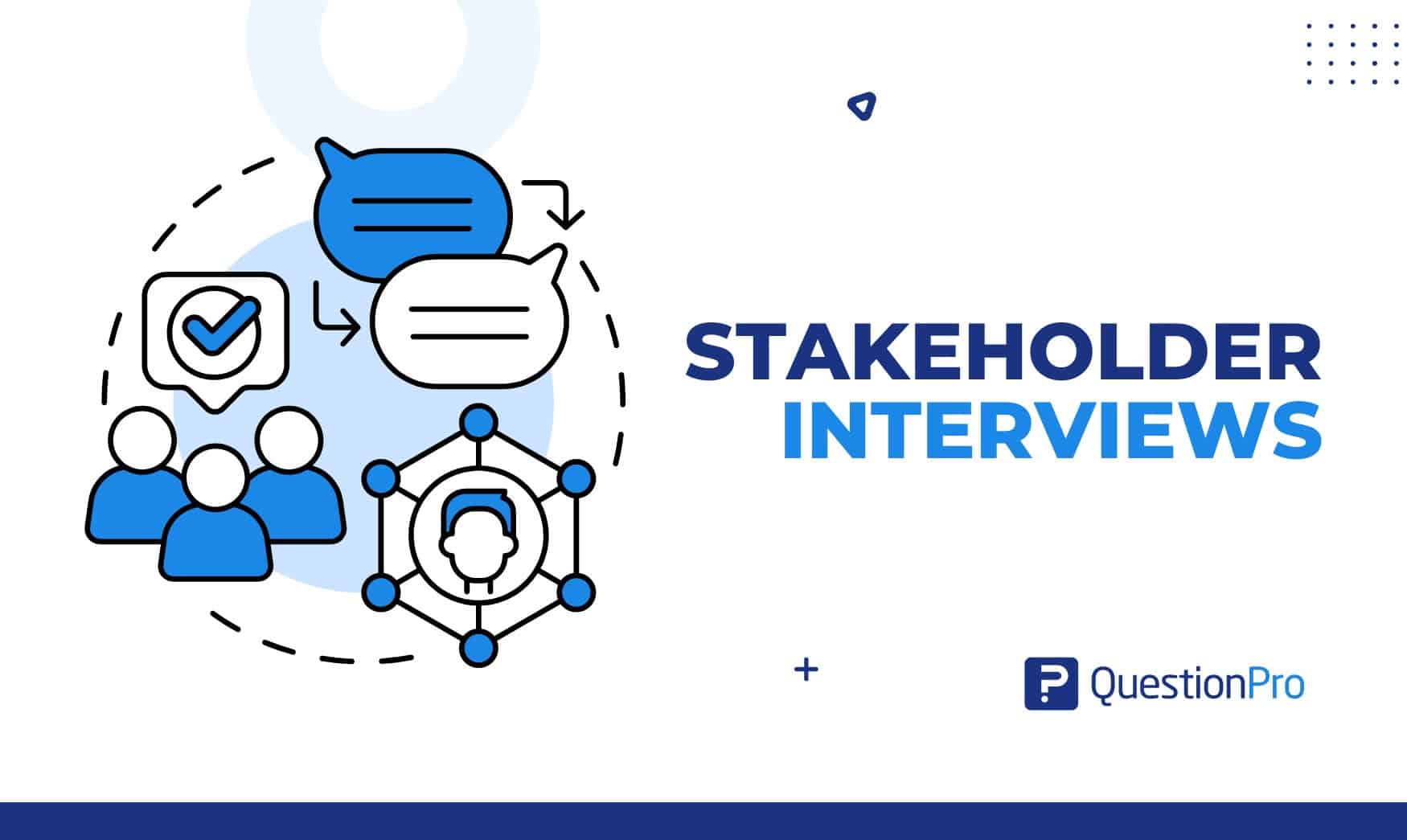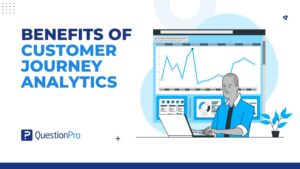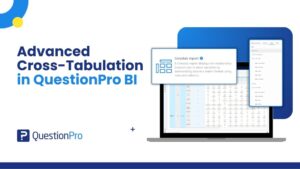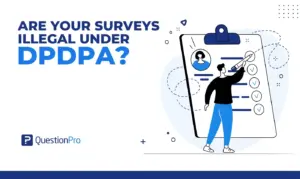
Stakeholder interviews are crucial to project management, product development, and organizational change initiatives. Understanding key stakeholders’ perspectives, needs, and concerns can significantly influence any project’s success.
This comprehensive guide will explore stakeholder interviews, why they are essential, and how to conduct them effectively. We’ll also discuss when to conduct internal stakeholder interviews, provide a list of questions to ask during these interviews and highlight their benefits. Additionally, we’ll see how tools like QuestionPro Workforce can facilitate this process.
What are Stakeholder Interviews?
Stakeholder interviews are structured conversations with individuals who have a vested interest in a project, product, or service. These individuals can be internal team members, customers, partners, or any other group affected by the project’s outcome. These interviews aim to gather insights, understand needs, and align expectations to ensure successful project execution.
In stakeholder interviews, gathering insights that design support business objectives and align with overall business goals is crucial to ensure that all strategic initiatives effectively meet the core that satisfies business objectives.
If you do a stakeholder interview correctly, you typically explore various perspectives on a project, including goals, expectations, concerns, and potential challenges. This process helps capture diverse viewpoints, leading to more informed decision-making and strategic alignment.
Importance of Stakeholder Interviews
Stakeholder interviews play a crucial role in project management and organizational success due to several key reasons:
Understanding Stakeholder Needs
Interviews allow project teams to gather insights into multiple stakeholders’ expectations, concerns, and requirements. This understanding ensures that projects are designed and executed to effectively meet stakeholders’ needs.
Aligning Objectives
By engaging stakeholders early and regularly, organizations can align project goals with broader strategic objectives. This alignment increases the likelihood of achieving desired outcomes and organizational success.
Identifying Risks and Opportunities
Stakeholder interviews help identify potential risks and opportunities that impact project success. Early identification allows teams to develop mitigation strategies and capitalize on opportunities effectively.
Building Relationships
Regular engagement through interviews builds trust and rapport with stakeholders. Strong relationships foster collaboration, support, and a sense of ownership among stakeholders, leading to smoother project implementation and higher stakeholder satisfaction.
Improving Decision-Making
Insights gained from stakeholders provide valuable data for informed decision-making. Whether adjusting project scope, prioritizing features, or resolving conflicts, stakeholder input enhances the quality of decisions made throughout the project lifecycle.
Enhancing Communication
Effective communication is essential for project success. Stakeholder interviews facilitate transparent and open communication channels, ensuring that information flows smoothly between project teams and stakeholders.
Driving Continuous Improvement
Feedback gathered from stakeholders during interviews can be used to refine processes, products, or services continuously. This iterative approach fosters innovation and enhances overall organizational agility.
How to Conduct a Stakeholder Interview
Conducting compelling stakeholder interviews requires careful planning and execution. Here’s a step-by-step guide to help you conduct successful stakeholder interviews:
1. Identify Stakeholders
- Define Roles: Determine who the key internal and external stakeholders have an interest or influence in the project.
- Prioritize: Identity which stakeholders are critical to interview based on their impact on the project and their perspectives.
2. Set Objectives
- Define Goals: Clarify the purpose of the interviews—whether it’s
- Gathering requirements,
- Understanding concerns, or
- Aligning expectations.
- Determine what insights or outcomes you aim to achieve from stakeholder interview questions.
3. Prepare Interview Questions
- Customize Questions: Develop a set of open-ended questions that address specific aspects relevant to each stakeholder’s role and interest.
- Include Probing Questions: Prepare follow-up questions to delve deeper into responses and uncover valuable insights.
4. Schedule and Coordinate
- Set Up Meetings: Arrange convenient interview times that accommodate stakeholders’ schedules.
- Provide Context: Share an agenda or briefing document beforehand to outline the interview’s purpose, expected duration, and topics to be discussed.
5. Conduct the Interview
- Build Rapport: Start with introductions and create a comfortable environment to encourage open dialogue.
- Listen Actively: Focus on understanding the stakeholder’s perspective by actively listening to their responses.
- Ask Probing Questions: Use prepared questions to explore details, motivations, concerns, and potential solutions.
- Take Notes: Document key points, insights, and action items discussed during the interview.
6. Follow-Up and Documentation
- Summarize Insights: After each interview, summarize the main points and insights gathered.
- Verify Information: Verify information with stakeholders to ensure accuracy and understanding.
- Document Findings: Compile detailed notes or interview transcripts for future reference and analysis.
7. Analysis and Action
- Identify Themes: Analyze interview data to identify common themes, trends, and areas of alignment or divergence.
- Make Recommendations: Based on insights, make informed recommendations or decisions regarding project direction, adjustments, or next steps.
- Communicate Findings: Share findings with relevant stakeholders and team members to facilitate alignment and informed decision-making.
8. Continuous Engagement
- Iterate: Use feedback from interviews to refine project strategies, improve communication, and enhance stakeholder engagement continuously.
- Maintain Relationships: Foster ongoing communication and stakeholder engagement throughout the project lifecycle to ensure alignment and manage expectations effectively.
When to Conduct Internal Stakeholder Interviews?
Internal stakeholder interviews should be conducted at various stages of a project or organizational initiative to gather insights, feedback, and perspectives from key individuals within the organization.
During stakeholder research, understanding technical constraints emerged as a crucial factor influencing project feasibility and stakeholder satisfaction. Here are some key times when conducting internal stakeholder interviews is particularly beneficial:
- Project Initiation: Conduct interviews at the beginning of a project or initiative to understand stakeholder expectations, goals, and initial requirements. This helps set a clear direction and align the project objectives with organizational goals.
- Mid-Project Review: Conduct interviews midway through the project to assess progress, gather feedback on interim deliverables, and identify emerging issues or concerns. This allows for course correction if needed and ensures alignment with stakeholder expectations.
- Before Major Milestones: Before reaching significant milestones or decision points in the project, conduct interviews to ensure stakeholders are informed, supportive, and aligned with the proposed next steps.
- After Deliverables: After key deliverables are completed or milestones are achieved, conduct interviews to gather feedback on the outcomes, lessons learned, and areas for improvement. This helps refine processes and enhance future project phases.
- Periodic Updates: Depending on the project duration and complexity, periodic interviews can be conducted to maintain ongoing communication and ensure stakeholders remain engaged and informed throughout the project lifecycle.
- Change Management Initiatives: During organizational change, such as process improvements, technology implementations, or restructuring, conducting interviews can help gauge stakeholder sentiment, address concerns, and ensure smooth transitions.
- Post-Implementation Review: After the project or initiative is completed and implemented, conduct interviews to evaluate overall success, capture final feedback, and identify opportunities for future projects or improvements.
Questions for Stakeholder Interviews
When preparing for stakeholder interviews, asking questions that gather relevant information, insights, and feedback is crucial. Here are some general categories and example questions you might consider:
Understanding Stakeholder Needs and Expectations
1. Goals and Objectives:
- What are your primary goals for this project/initiative?
- How do you define success for this project?
2. Expectations:
- What do you expect to achieve from this project/initiative?
- What outcomes are most important to you?
3. Challenges and Concerns:
- What challenges or obstacles do you foresee in achieving these goals?
- Are there any specific concerns you have about the project/initiative?
Gathering Feedback and Insights
1. Feedback on Current State:
- How satisfied are you with the current process/system?
- What aspects of the current process/system are most challenging or frustrating?
2. Improvement Opportunities:
- What improvements could be made to enhance the effectiveness of this project/initiative?
- Are there any innovative ideas or approaches you think should be considered?
3. Roles and Responsibilities:
- How do you see your role in supporting this project/initiative?
- Are there any resources or support you need to contribute effectively?
Communication and Collaboration
1. Communication Preferences:
- How would you prefer to receive updates and information about the project/initiative?
- How often would you like to be updated on progress?
2. Collaboration and Team Dynamics:
- How do you envision collaboration among different teams or departments for this project/initiative?
- Are there any potential conflicts or barriers to effective collaboration that we should address?
Project Specifics and Details
1. Project Scope and Requirements:
- Are any specific requirements or features that must be included in the final product or outcome?
- Are there any constraints or limitations we should be aware of?
2. Risk Management:
- What risks do you perceive for this project/initiative, and how should we mitigate them?
- Are there any dependencies or external factors that could impact the project’s success?
Wrap-Up
1. Overall Feedback:
- Is there anything else you want to share that hasn’t been discussed?
- Do you have any additional thoughts or suggestions for improving communication or stakeholder engagement?
Tips for Effective Interviews:
- Be Open and Non-directive: Allow stakeholders to express their thoughts freely.
- Listen Actively: Pay attention to both verbal and non-verbal cues.
- Follow-Up: Clarify responses and ask probing questions when necessary.
- Document Responses: Take thorough notes to capture key insights and actions.
By asking thoughtful questions in these areas, you can gain valuable perspectives from stakeholders, ensure alignment with project goals, and enhance overall project success through informed decision-making and collaboration.
Benefits of Stakeholder Interviews
Stakeholder interviews offer numerous benefits that contribute to the success of projects and initiatives within an organization. Here are some key advantages:
- Understanding Stakeholder Perspectives: Interviews allow you to gain insights into stakeholders’ viewpoints, expectations, concerns, and priorities related to the project or initiative. This understanding helps align project goals with stakeholder needs, ultimately improving project outcomes.
- Building Relationships and Trust: Engaging stakeholders through interviews demonstrates their input is valued. This can strengthen relationships and foster trust between project teams and stakeholders, leading to better collaboration and support throughout the project lifecycle.
- Identifying Requirements and Expectations: Interviews help elicit stakeholders’ specific requirements, preferences, and expectations. This information is crucial for defining project scope, determining key deliverables, and ensuring the outcomes meet stakeholder needs.
- Clarifying Ambiguities: Stakeholder interviews provide opportunities to clarify ambiguities or conflicting information regarding project goals, scope, or requirements. This reduces misunderstandings and helps in establishing a clear direction for the project.
- Gathering Diverse Perspectives: Different stakeholders may have varying roles, expertise, and perspectives. Interviews enable you to capture a wide range of viewpoints, which enriches decision-making processes and promotes innovation by considering diverse ideas and insights.
- Mitigating Risks: By discussing potential challenges, risks, and barriers with stakeholders during interviews, project teams can proactively identify and address issues before they escalate. This proactive approach enhances risk management and increases the likelihood of project success.
- Improving Communication and Engagement: Regular stakeholder interviews facilitate communication between project teams and stakeholders. This ongoing dialogue promotes transparency, keeps stakeholders informed about project progress, and encourages active participation and support.
- Validating Assumptions: Interviews provide opportunities to validate assumptions about stakeholder needs, preferences, and priorities. This validation ensures that project decisions are based on accurate information, reducing the risk of costly revisions or rework later in the project.
- Driving Continuous Improvement: Feedback gathered from these interviews can be used to identify areas for improvement in processes, products, or services. This continuous improvement cycle enhances organizational efficiency, effectiveness, and stakeholder satisfaction.
- Enhancing Stakeholder Satisfaction: Ultimately, stakeholder interviews contribute to delivering outcomes that meet or exceed stakeholder expectations. This satisfaction supports the current project, builds positive relationships, and sets the stage for future collaborations and initiatives.
How QuestionPro Workforce Can Help in Conducting Stakeholder Interviews
QuestionPro Workforce offers several features and benefits that can significantly aid in conducting and planning stakeholder interviews:
1. Panel Recruitment
QuestionPro Workforce provides access to a diverse panel of respondents, allowing you to select stakeholders based on specific criteria such as demographics, industry, or role within the organization. This ensures that you can reach the right stakeholders for your interviews.
2. Survey Design and Distribution
QuestionPro’s platform allows you to easily create customized surveys tailored to gathering stakeholder feedback. The platform offers various question types, including open-ended, multiple-choice, and rating scales, to capture detailed insights.
3. Automated Reminders and Notifications
QuestionPro automates reminders and notifications to stakeholders, ensuring timely responses and maximizing participation rates in your interviews. This feature helps in maintaining engagement throughout the interview process.
4. Data Analysis and Reporting
The platform provides robust tools for data analysis, allowing you to analyze responses from stakeholders quickly. You can generate reports and visualizations summarizing key findings, trends, and insights from the interviews.
5. Integration Capabilities
QuestionPro integrates with other tools and platforms, facilitating seamless data exchange and workflow integration. This ensures that data collected from a successful stakeholder interview can be efficiently used for decision-making and action planning across your organization.
6. Security and Confidentiality
QuestionPro prioritizes data security and confidentiality, ensuring that stakeholder responses are protected and compliant with privacy regulations. This feature is crucial for handling sensitive information during interviews.
7. Support and Training
QuestionPro provides comprehensive support and training resources to help you maximize the platform’s capabilities. Whether setting up surveys, analyzing data, or interpreting results, their support team can assist throughout the interview process.
8. Customization and Branding
You can customize surveys and interview invitations with your organization’s branding, creating a professional and consistent experience for stakeholders and reinforcing your organization’s identity and credibility.
Conclusion
Stakeholder interviews are a powerful tool for gathering insights, aligning goals, and fostering collaboration. Whether embarking on a new project or looking to improve existing processes, engaging your stakeholders through structured interviews can provide the clarity and support needed for success.
Understanding their needs, expectations, and concerns can drive more effective decision-making, enhance project outcomes, and build stronger relationships. So, take the time to prepare, conduct, and follow up on your stakeholder interviews – the benefits are well worth the effort.
QuestionPro Workforce is a powerful tool for organizations looking to conduct stakeholder interviews effectively and efficiently. By leveraging its panel management, customizable survey tools, real-time reporting, and integration capabilities, organizations can gather valuable insights from stakeholders to inform decision-making, improve stakeholder engagement, and ultimately drive project success.







